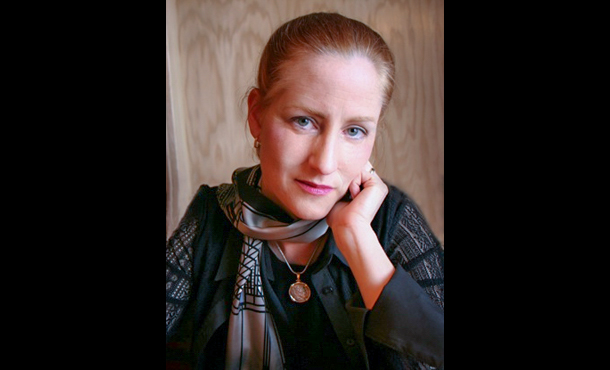When bioethicist and living donor advocate Sigrid Fry-Revere learned in 2007 that Iran was the only country in the world that had solved the need for organ donors in a responsible and ethical way, she was surprised. The fact drove her to ask why, and to spend two months in Iran secretly interviewing as many people as she could find involved in the transplant process.
She shares her experiences in a book, The Kidney Sellers: A Journey of Discovery in Iran (Carolina Academic Press, 2014), and in an upcoming Suter Science Seminar titled “The Changing World of Transplant Ethics” at Eastern Mennonite University. She speaks Monday Sept. 21, at 4 p.m. in the Suter Science Center.
“It is critical for students in our undergraduate biology and graduate biomedicine programs to critically evaluate bioethical issues such as those espoused by Dr. Fry-Revere,” said professor Julia Halterman, PhD, who teaches in both programs. “It is an honor to have the opportunity to learn of the global issues surrounding this topic from an expert, especially since we will be discussing transplant ethics in our graduate MA in biomedicine seminar this semester.”
Fry-Revere’s seminar is co-sponsored by EMU’s School of Graduate and Professional Studies. “We’re committed to ethics and social justice here at EMU, and in developing in our students the critical analysis and communication skills to analyze these issues in a variety of professions,” said Jim Smucker, vice president and dean of graduate studies. “Fry-Revere brings important lessons to our learning community in both of those topics.”
Proposing a solution to the organ shortage
Currently a medical ethicist on the Organ and Tissue Advisory Committee of the Washington Regional Transplant Community, Fry-Revere runs two nonprofit organizations and has been widely tapped as an expert in many medical issues in a variety of national and international media outlets.
Her 2014 TedMed talk begins with the story of her 10-month-old son, who developed kidney cancer. She was a willing donor, Fry-Revere shares, but not everyone is so fortunate: “The world average is about four organs available for every 100 people in need,” she said. “… Because more than 99 percent are too ill, too injured, or too far from a hospital when they die for their organs to be of use for transplant, so until we can grow organs in a lab, our only realistic option for reducing the organ shortage is to increase the number of living organ donors.”
How can we do this without risking exploitation of poor people at home and abroad? she asks.
Fry-Revere says Iran has a “well-funded, legal and safe alternative” to a black market system. In Iran, the donation process is managed by non-profits and donors are compensated both with cash but also other benefits like health insurance, loans and education, should be replicated.
‘Dying needlessly’
One goal of her life’s work is “help people think realistically about helping the more than 100,000 Americans actively waiting for a kidney before they die needlessly after languishing on dialysis,” the author shares in a book trailer.
Fry-Revere is founder of The Center for Ethical Solutions, dedicated to finding practical answers to the difficult questions of medical ethics and health policy, including politicized issues of organ shortage, doctor/patient-directed pain management, the state of medical care available to veterans, and end-of-life healthcare. She is also founder of Stop Organ Trafficking Now, a nonprofit organization working to increase live organ donation and reduce the number of Americans purchasing organs on the black market.
An alumna of Smith College with a degree in philosophy and government, Fry-Revere earned her MA, JD and PhD from Georgetown. She has practiced bioethics, health and Federal Drug Administration-related law, and held academic positions related to bioethics at University of Virginia’s Center for Biomedical Ethics and George Mason University’s College of Nursing and Health Science. She was most recently director of bioethics studies at the Cato Institute.
The Suter Science Seminar series features regular lectures by experts in their field. The next lecture is Oct. 2 with author, activist and educator Todd Wynward.
